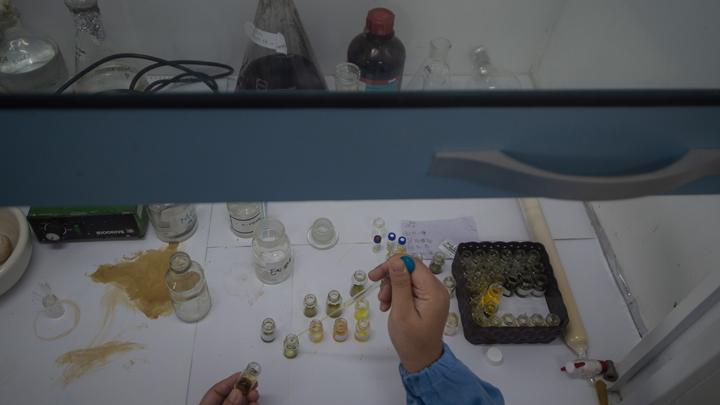
TEMPO.CO, Jakarta - Not all of Indonesia’s biodiversity has been exploited to make natural medicines. Government subsidies must not be the determining factor.
IT is time our pharmaceutical industry stopped being dependent on imported ingredients. No less than 96 percent of the chemical ingredients for drugs come from overseas, despite research from the health ministry in 2017 showing there were 11,218 types of medicinal plant in Indonesia. Ironically, our national pharmaceutical industry only produces 24 types of phytopharmacological - or herbal medicines, meaning they are produced from natural ingredients.
There are a number of factors behind the slow growth of Indonesian phytopharmacological medicines. The reluctance of the domestic pharmaceutical industry is focused on two factors: high research costs and limited market demand.
This magazine discovered that the process of developing phytopharmacological drugs is indeed complex and requires a relatively large investment. For example, in order to be sold as herbal medicine, traditional herbal medicines or jamu must undergo six months of preclinical trials at a cost of between Rp500 million and Rp1 billion. If these are successful, the medicine can be classed as a standard herbal treatment. After this, in order to be recognized as a phytopharmacological drug of the same quality as chemically produced medicines, standard herbal medicines must undergo two to three years of clinical trials costing up to Rp2 billion.
At the same time, only a limited number of doctors are prepared to prescribe natural medicines for their patients. Furthermore, phytopharmacological treatments are not yet included in the National Formulary, the list of medicines recommended for use by health insurers, including the Health Care and Social Security Agency (BPJS Kesehatan).
Therefore, it is understandable that few national pharmacy companies have the courage to invest in the research and development of domestic phytopharmacological treatments. In this context, the promise by Minister of Research and Technology/National Research and Innovation Agency Bambang Brodjonegoro to provide incentives for pharmaceutical companies prepared to conduct research into this kind of medicine could spur them on. Minister Bambang also gave a commitment to bring together researchers and the pharmaceutical industry. However, this type of government intervention has its limits, especially if the market for phytopharmacological medicines has not arisen naturally.
The first thing the government should do to improve matters is make more doctors aware of the existence and benefits of phytopharmacological medicines. Revising Health Minister Regulation No. 54/2018 on the drawing up and implementation of the national formulary and implementation of the health care guarantee program would be one way. After this, the pharmaceutical industry needs to push for a public campaign together with the Indonesian Medical Association and other health care staff associations so that the public has a better understanding of the virtues of phytopharmacological medicines.
A commitment by the Food and Drug Monitoring Agency (BPOM) to assist pharmaceutical companies carrying out preclinical and clinical trials of phytopharmacological drugs would also be a positive move. However, the standards of medical trials must not be relaxed in the interests of the mass production of phytopharmacological medicines. The quality of these drugs must be properly scientifically tested before they gain public trust.
Finally, all these incentives will come to nothing if the infrastructure and quality of medical and pharmaceutical research do not improve. Universities and other research institutes need to be supported in the development of research by various schemes. Only a nation with a healthy research climate and infrastructure will be able to produce large numbers of innovations. Without this, the wealth of our biodiversity will gradually vanish along with the disappearance of our forests.
Read the Complete Story in Tempo English Magazine























